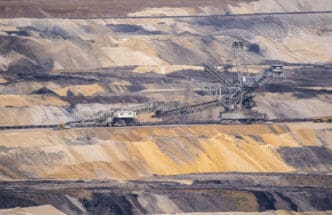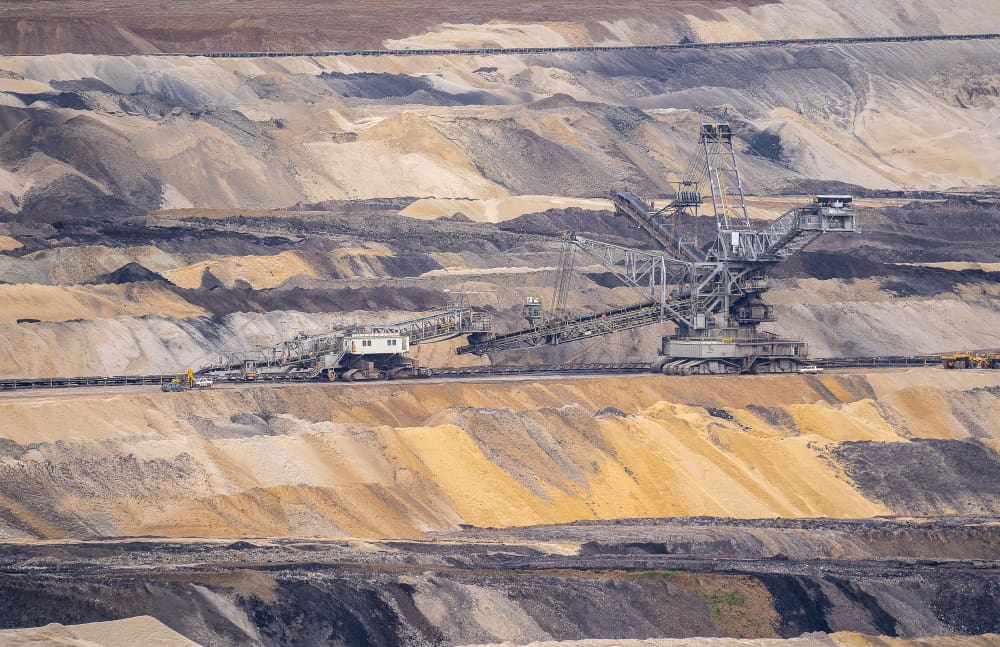The sole rare earth mine in the United States has seen a surge in interest from companies following China’s recent response to President Donald Trump’s tariffs by limiting exports of these minerals. These minerals are crucial for military applications and numerous high-tech devices. The Mountain Pass mine, operated by MP Materials in California’s Mojave Desert, reported receiving numerous inquiries, underscoring the immediate impact of China’s export restrictions.
The ongoing trade war between the world’s two largest economies could lead to a significant shortage of rare earth elements if China continues or expands its export controls. The California mine alone is insufficient to meet the entire U.S. demand for rare earths, prompting initiatives by Trump to pave the way for new mining operations. Rare earth elements play a vital role in manufacturing electric vehicles, powerful magnets, advanced fighter jets, submarines, smartphones, TV screens, and various other products. Despite their name, these 17 elements are not particularly rare, but finding them in concentrations high enough for profitable mining is challenging.
MP Materials, which acquired the inactive Mountain Pass site in 2017, announced that it would cease sending its ore to China for processing due to the 125% tariffs imposed by Beijing on U.S. imports. The company plans to continue processing nearly half of its extracted minerals while storing the remainder as it works to increase processing capacity. Economic and national interests drive this decision, as exporting under such high tariffs is deemed commercially unreasonable.
Experts suggest that manufacturers dependent on rare earth elements and other critical minerals will face price increases, but there remains sufficient global supply to keep factories operational for now. The California mine produces neodymium and praseodymium, essential components in permanent rare earth magnets used in electric vehicles and wind turbines. However, small amounts of heavy rare earths such as terbium and dysprosium, which China has restricted, are crucial for maintaining magnet performance at high temperatures. Since late March, terbium prices have surged by 24%, reaching $933 per kilogram.
China wields considerable influence over the rare earth market, possessing the largest mines and accounting for nearly 90% of global supply due to its extensive processing capabilities. On April 4, Beijing imposed restrictions requiring Chinese exporters of seven heavy rare earths and some magnets to obtain special licenses. These retaliatory measures highlight the urgent need to develop more U.S. mines to reduce reliance on China.
Trump has attempted, albeit unsuccessfully, to secure more rare earths and critical materials from Greenland and Ukraine. Last month, he signed an executive order to expedite federal permit approvals for new mines and encourage investment in such projects. Companies like NioCorp and U.S. Critical Minerals are exploring opportunities in Nebraska and Montana, hoping for federal support to secure the necessary funding and permits.
MP Materials is actively working to expand its processing capabilities, partly aided by approximately $45 million received during Trump’s first term. Despite investing almost $1 billion since 2020, the company still lacks the capacity to process the heavy rare earths restricted by China, although efforts are underway to address this gap.
Major U.S. automakers declined to comment on their dependency on rare earths and the potential impact of Beijing’s restrictions. Defense contractors, including Boeing and Lockheed Martin, also refrained from commenting. Military technology relies on these materials in smaller but significant quantities. Trump’s recent executive order calls for an investigation into the national security implications of such reliance.
Steve Christensen, head of the Responsible Battery Coalition, warns that battery manufacturers might face shortages of essential elements within weeks. Already, antimony prices have more than doubled since China restricted exports last year. This critical mineral is not among the 17 rare earths, but Trump is advocating for its domestic production.
Initially, automakers may attempt to absorb increased battery costs without raising vehicle prices, but sustained restrictions could make this unsustainable. A 25% tariff imposed by Trump on all imported cars and parts is expected to raise costs, though he hinted at a possible temporary reprieve for the industry.
Until the late 1990s, the U.S. met its rare earth needs domestically, but cheap Chinese minerals flooded global markets, ending most domestic production. New technologies, such as robots and drones, have rapidly increased demand for these resources.
NioCorp plans to conduct additional exploratory drilling this summer to demonstrate to the Export-Import Bank that sufficient rare earths are available near Elk Creek, Nebraska, to justify an $800 million loan for its project. However, it will take years for a new U.S. rare earth mine to become operational. If fundraising proceeds smoothly, NioCorp hopes to start operations by the conclusion of Trump’s presidency. U.S. Critical Minerals intends to extract several tons of ore in Montana this summer to test its processing methods. Though less advanced than the Nebraska project, promising deposits with high rare earth concentrations have been identified.








